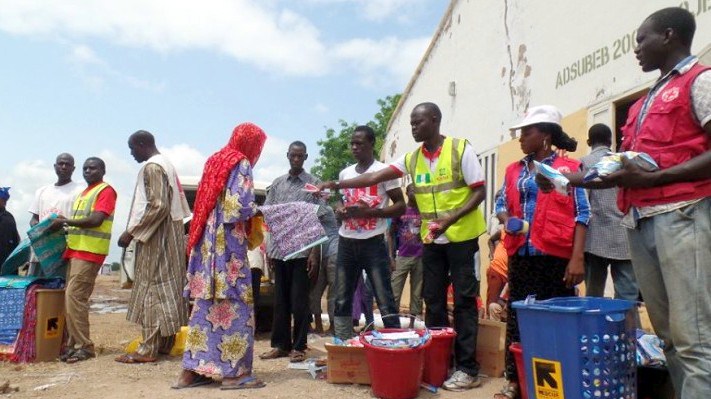
Poverty, conflict and climate change will leave 15 million people across Africa’s Sahel belt in need of life-saving aid next year, the UN said as it launched a record $2.7 billion humanitarian appeal for the region in 2017.
Around 40 per cent of the money (about $1 billion) will be used to help some seven million people in Nigeria affected by the jihadist group Boko Haram’s seven-year insurgency, according to the U.N. Office for the Coordination of Humanitarian Affairs (OCHA).
The UN’s statement of about 7 million Nigerians needing help in the aftermath of the Boko Haram insurgency comes days after the Nigerian government accused the global body and other international organisations working in the north-east of exaggerating the crisis for financial reasons.
“We are concerned about the blatant attempts to whip up a non-existent fear of mass starvation by some aid agencies, a type of hype that does not provide a solution to the situation on the ground but more to do with calculations for operations financing locally and abroad,” Nigeria’s President Muhammadu Buhari said in a statement by his spokesperson.
The president highlighted what he said were contradictions in some of the claims made by different humanitarian groups about the crisis.
“In a recent instance, one arm of the United Nations screamed that 100,000 people will die due to starvation next year. A different group says a million will die,” he said.
Mr. Buhari was reacting to statements made by officials of international organisations including the UN highlighting the humanitarian crisis in north-east Nigeria.
The U.N. Deputy Humanitarian Coordinator, Peter Lundberg, had said in a statement last Friday that “A projected 5.1 million people will face serious food shortages as the (Boko Haram) conflict and risk of unexploded improvised devices prevented farmers planting for the third year in a row, causing a major food crisis.”
Unperturbed by the Nigerian president’s remarks, the UN has decided to make the appeal to raise the funds to help the millions of victims.
OCHA has increased its appeal for eight countries in the semi-arid band stretching from Senegal to Chad more than tenfold in as many years, but each year funding has fallen short.
This year’s $2 billion appeal has been less than half-funded to date.
“The lack of funding this year has worsened the humanitarian needs of 11 million people in the Lake Chad Basin, where the crisis is most acute,” the U.N.’s regional humanitarian coordinator, Toby Lanzer, said.
One in six people across the Sahel are hungry, while in many communities throughout the region, a fifth of children under the age of five are malnourished, according to figures from OCHA.
In addition to violence involving militant groups, climate change is a major factor behind the growing number of vulnerable people across the region, as increasingly unpredictable rainfall patterns disrupt local food production, aid workers say.
“We are adapting by equipping farmers and policymakers with climate information and early warning forecasts, and being prepared not just weeks, but months and years ahead,” said Arame Tall, Africa regional coordinator of the U.N.-led Global Framework for Climate Services.
The vast number of vulnerable people, and those forced from their homes by violence across the Sahel, some 4.5 million, is fuelling migration to Europe and driving more young men to join militant groups, according to the UN.
Nigeria is the main country of origin for migrants arriving in Italy by sea this year, says the International Organization for Migration (IOM).
At least 34,000 Nigerians have crossed from Libya so far in 2016, up from 22,200 last year, IOM data shows.
“Families and communities are separated and split, education is disrupted, and dreams of success dashed,” said Anne Moltes, regional director of the peace building group Inter peace.
“If there is no structure, young men leave to find figures of authority elsewhere,” she said at the launch of the appeal.
Africa’s booming population, estimated by the UN to double to 2.4 billion by 2050, will only exacerbate the situation and leave more people in need of aid, Lanzer said.
The Sahel appeal was launched days after OCHA asked for a record $22.2 billion in 2017 to help almost 93 million people worldwide hit by conflicts and natural disasters.
PremiumTimes
END

Be the first to comment